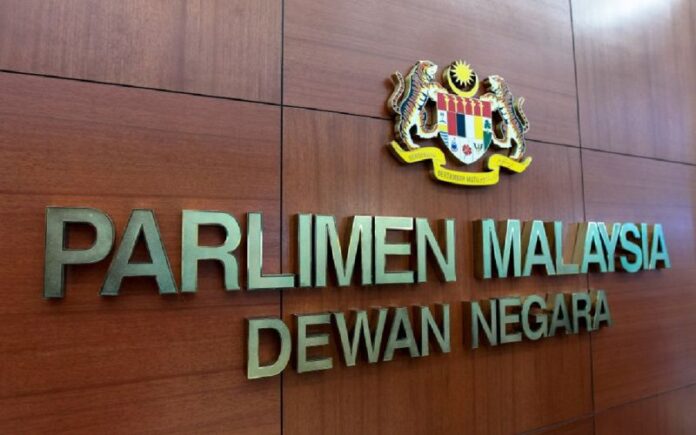A general view of Dewan Negara at Parliament, Kuala Lumpur September 2, 2020. – Picture via Twitter
KUALA LUMPUR, Dec 23 — The Dewan Negara today unanimously passed the Finance Bill 2021 involving amendments to eight acts to pave the way for the implementation of measures announced in Budget 2022.
The bill was passed with a majority voice vote after its third reading by Deputy Finance Minister 1 Datuk Mohd Shahar Abdullah following a debate by six senators.
These amendments involve the Income Tax Act 1967, Real Property Gains Tax Act 1976, Stamp Act 1949, Petroleum (Income Tax) Act 1967, Labuan Business Activity Tax Act 1990, Investment Promotion Act 1986, Finance Act 2012 and Finance Act 2018.
During the winding up debate on the Finance Bill 2021, Mohd Shahar said the Ministry of Finance has prepared medium-term strategies to raise tax revenue, broaden the government’s revenue base, harness the potential of the informal sector and reduce tax leakages.
“The ministry will improve tax administration through effective data management and we will be able to integrate data with the respective and relevant agencies,” he said.
He said the government has no plans to implement a capital gains tax on the buying and selling of shares.
“However, there will be ongoing initiatives by the government to structure a tax system that is balanced, fair and equitable in order to raise the country’s revenue.
“These initiatives are necessary as there are various measures needed to support the current and future Covid-19 rehabilitation process,” he said.
Mohd Shahar said the Income Tax Act 1967 tabled in the bill enables the Inland Revenue Board (IRB) to obtain taxpayers’ bank account information only for cases where the court has allowed a garnishee to be made.
He said the legal proceedings involving garnishment cases are to enforce judgement by seizing or withholding what is due to a party, and in this case, to ensure that tax arrears are paid.
“The introduction of this new provision will help the IRB to better administer the country’s direct tax system by minimising leakages due to taxpayers’ failure to settle their debts.
“It will also raise the rate of compliance among taxpayers,” he said.
The provision does not give absolute power to the IRB to access taxpayers’ bank accounts arbitrarily, he said. — Bernama


